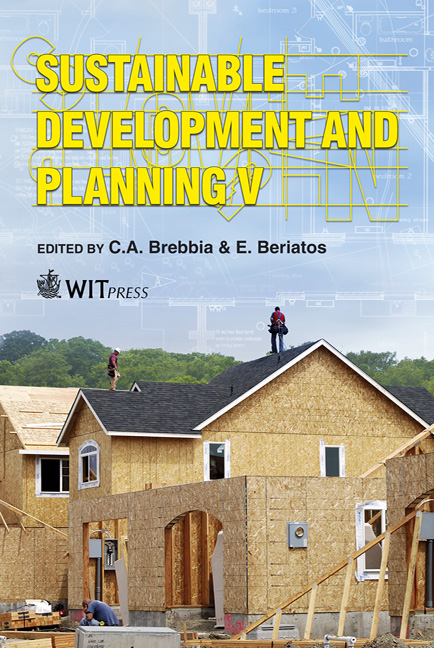Evaluating Stakeholders Preferences: Reconciling Heritage And Sustainability
Price
Free (open access)
Transaction
Volume
150
Pages
12
Page Range
675 - 686
Published
2011
Size
3309 kb
Paper DOI
10.2495/SDP110561
Copyright
WIT Press
Author(s)
N. A. W. Abdullah Zawawi & A. Abdullah
Abstract
The subsistence of traditional shophouse is threatened by demolition, unsympathetic changes and rapid redevelopment pace. Most often, the decisions pertaining to redevelopment of this built heritage are based on guidelines unrepresentative of the multi-cultural society in Malaysia. Involvement of direct stakeholders, namely owners and tenants, are minimal in the decision process. This paper provides an objective evaluation for the traditional shophouse redevelopment, incorporating multiple stakeholders’ preferences. It focuses on exploring conflicts and values of the stakeholders using Multiple Criteria Analysis, or MCA technique. Using a common MCA technique, the Analytical Hierarchy Process, or AHP, stakeholders’ preferences on a set of criteria for redevelopment decision are derived and compared. It is found that stakeholders’ preferences are dissimilar even within their homogenous groups. This study contributes to discovering the potential of MCA to increase transparency in redevelopment decisions involving built heritage and multiple stakeholders. Keywords: conservation area, Kuala Lumpur, redevelopment decision, traditional shophouse, stakeholders, multi-cultural society, MCA, AHP. 1 Introduction Jacobs [1] believed that to a sustainable city embraces its past in future planning. The past gives a sense of belonging to a society, balancing progressive development with conservation of cultural values within its society [2, 3]. Cultural values of a society are strongly associated with the physical structures,
Keywords
conservation area, Kuala Lumpur, redevelopment decision,traditional shophouse, stakeholders, multi-cultural society, MCA, AHP.





